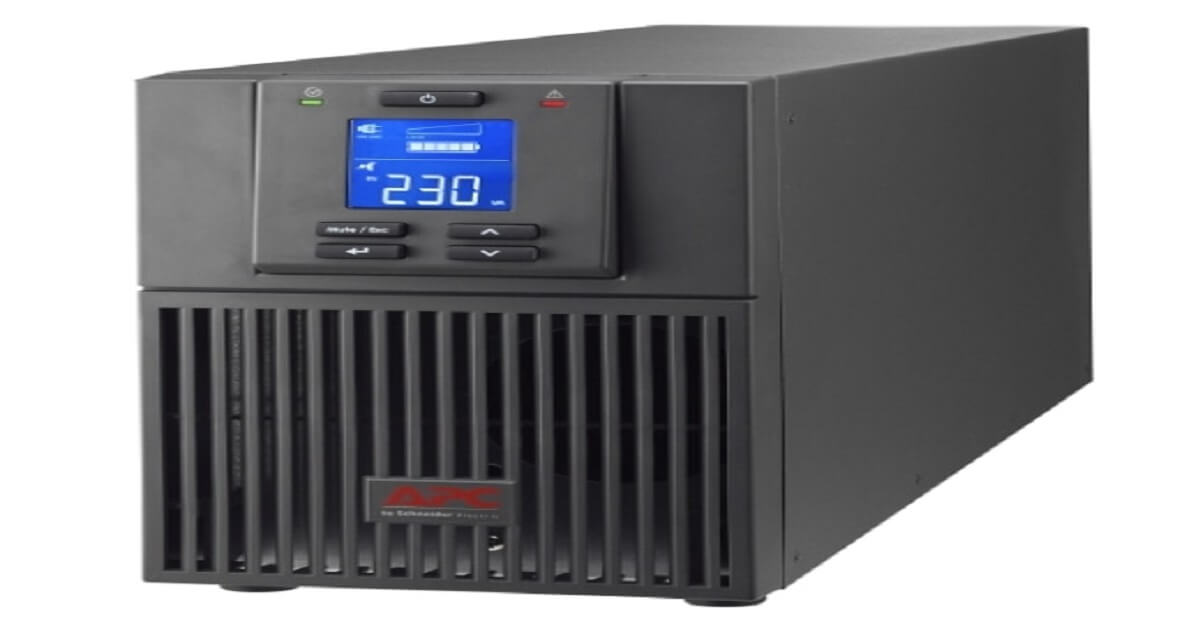In today’s digital age, data is the lifeblood of businesses, regardless of their size or industry. Whether it’s customer information, financial records, product data, or intellectual property, the loss or corruption of this data can be catastrophic. That’s where Uninterruptible Power Supply (UPS) systems come into play.
The Vulnerability of Data
Data is more vulnerable than ever before. With businesses relying heavily on digital technology, servers store the data, network-attached storage (NAS) devices, and the cloud. While this digital transition has brought numerous benefits, it has also exposed data to new risks. One of the most significant threats comes from power disturbances and outages.
Power Outages: Power outages, whether caused by severe weather, equipment failure, or other factors, can lead to sudden shutdowns of servers and data storage devices. This abrupt interruption can result in data loss and even hardware damage.
Voltage Fluctuations: Electrical grids are not always stable. Voltage fluctuations, such as surges and sags, can harm sensitive electronic equipment. Over time, these fluctuations can reduce the lifespan of your hardware.
Data Corruption: Sudden power loss can corrupt data being read or written at the time of the outage. It can lead to data inconsistencies and file errors.
Downtime: Beyond data loss, power outages cause downtime, which can disrupt business operations, decrease productivity, and harm customer satisfaction.
The Role of UPS in Data Protection
Uninterruptible Power Supply (UPS) systems safeguard data and ensure business continuity. Here’s how:
Power Continuity: UPS systems act as a buffer between your electrical supply and your critical equipment. When a power outage occurs, the UPS seamlessly switches to its internal battery power, providing an uninterrupted flow of electricity to your devices.
Data Saving: UPS systems give you precious time to save your work and shut down your equipment gracefully. It prevents data loss and reduces the risk of corruption.
Voltage Regulation: Many UPS systems have voltage regulation features, ensuring that your equipment receives a consistent and clean power supply. This protection extends the life of your hardware.
Protection Against Surges and Spikes: UPS systems often include surge protection capabilities, shielding your devices from power surges and spikes caused by lightning, electrical faults, or other factors.
Remote Monitoring: Modern UPS systems offer remote monitoring and management options. It allows IT professionals to monitor the status of the UPS, receive alerts, and perform maintenance from a remote location, enhancing overall system reliability.
Selecting the Right UPS for Your Business
Choosing the correct UPS system for your business is essential to maximize its benefits. Here are some factors to consider:
Load Capacity: Determine the total power consumption of your critical equipment to select a UPS with adequate load capacity.
Runtime: Calculate how long you need the UPS to provide backup power during an outage. It depends on your business’s needs, such as the time required to shut down systems or continue operations.
Type of UPS: There are different UPS systems, including standby, line-interactive, and online (double conversion). Each has its advantages and is suited for specific applications.
Battery Type: UPS systems use various battery types, such as lead-acid and lithium-ion. When choosing, consider factors like battery life, replacement costs, and environmental impact.
Budget: UPS systems come in a range of price points. Balance your budget with your need for features and capacity.
Warranty and Support: Look for a UPS with a reliable warranty and accessible customer support. You’ll want peace of mind in case any issues arise.
Scenarios Where a UPS Is Essential
Let’s explore some specific scenarios where a UPS is indispensable for data protection:
Data Centres: Data centres are at the heart of many businesses, housing servers and networking equipment. A UPS is critical in data centres to ensure uninterrupted service and protect against data loss during power disturbances.
E-commerce Websites: Online retailers need help to afford downtime, especially during peak shopping seasons. A UPS keeps e-commerce websites running smoothly and processes customer transactions without interruption.
Financial Institutions: Banks and financial institutions handle sensitive financial data. A UPS is essential to maintain data integrity and ensure seamless operations during power outages.
Healthcare Facilities: Hospitals and healthcare facilities rely on electronic medical records and equipment. A UPS is vital to safeguard patient data and ensure continuous care delivery.
Small Businesses and Home Offices: Even small businesses and home offices benefit from UPS systems. They protect essential equipment, such as computers and networking gear, ensuring uninterrupted workflow and data protection.
Conclusion
In the digital age, protecting your business data is non-negotiable. Uninterruptible Power Supply (UPS) systems provide a crucial layer of defence against power disturbances, outages, and data loss. From large enterprises to small startups, every business can benefit from the peace of mind of a UPS. It’s not just about data protection; it’s about ensuring business continuity and maintaining customer trust in an increasingly digital world. Invest in a UPS system today to safeguard your critical data and the future of your business.


